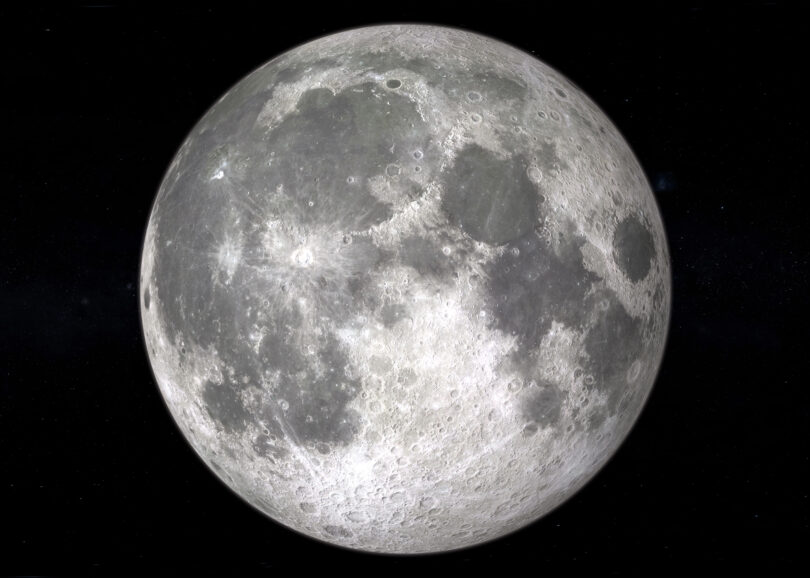For centuries, humans have been fascinated by the moon, attributing to it powers and influences over various aspects of life, including sleep. Many people claim to experience poor sleep quality or insomnia during a full moon, and while some may dismiss these claims as mere superstition, there may actually be scientific evidence to support them. In this article, we explore the connection between the full moon and sleep, the evolutionary biology behind lunar influence, and the potential implications for our health.
The Lunar Influence on Sleep
It is well-known that the moon exerts a gravitational pull on the Earth, affecting tides and other natural phenomena. However, recent research has suggested that the moon may also have a direct impact on our physiology, including our sleep. In a study published in the journal Current Biology, researchers found that participants experienced a 30% reduction in their deep sleep during a full moon compared to a new moon. Additionally, the participants took longer to fall asleep and slept for shorter periods of time overall during the full moon phase.
Another study published in the journal Frontiers in Pediatrics examined the sleep patterns of children with neurodevelopmental disorders and found that they experienced more frequent night wakings and less total sleep during the full moon phase. These findings suggest that the lunar cycle may have a greater impact on vulnerable populations, such as children with sleep disorders or neurodevelopmental disorders.
While the exact mechanisms behind these observations are not yet fully understood, researchers have proposed several theories. One possibility is that the increased light during a full moon disrupts our circadian rhythms, the internal biological clock that regulates our sleep-wake cycle. Melatonin, a hormone that helps regulate sleep and is produced in response to darkness, may also be impacted by the increased light during a full moon. Additionally, some researchers speculate that our evolutionary history may play a role in our sensitivity to lunar cycles.
Evolutionary Biology and Lunar Influence
The idea that the full moon affects our sleep may seem far-fetched, but it actually has a basis in evolutionary biology. Humans, like many other animals, have evolved to respond to cues from the natural environment, including changes in light and dark cycles. Our circadian rhythms, for example, are synchronized with the 24-hour day-night cycle, and disruptions to this cycle can have negative effects on our health.
However, humans also have a long history of living in sync with the lunar cycle. The moon, with its predictable monthly phases, provided early humans with a reliable way to track time and coordinate activities such as hunting and gathering. In fact, some researchers believe that the evolution of our circadian rhythms may have been influenced by the lunar cycle, as our ancestors used the moon as a natural cue for sleep and wakefulness.
One theory proposes that the full moon may have a similar effect on our physiology as artificial light. Artificial light, such as that emitted by electronic devices, can disrupt our sleep by suppressing melatonin production and altering our circadian rhythms. Similarly, the increased light during a full moon may interfere with our natural sleep-wake cycle, leading to poorer sleep quality and shorter sleep duration.
Strategies to Mitigate the Impact of Full Moon on Sleep
While the exact mechanisms behind the impact of the full moon on sleep are not yet fully understood, there are some strategies that you can try to minimize the disruption to your sleep during the full moon phase.
- Create a Comfortable Sleep Environment: Make sure that your bedroom is a comfortable and conducive environment for sleep. This may include investing in a comfortable mattress and pillows, using blackout curtains to block out any external light, and ensuring that the temperature in your room is cool and comfortable.
- Practice Good Sleep Hygiene: Adopting good sleep habits can help improve your sleep quality during any phase of the lunar cycle. This may include sticking to a regular sleep schedule, avoiding caffeine and alcohol before bedtime, and avoiding electronic devices before bedtime.
- Reduce Exposure to Light: Exposure to light, particularly blue light emitted by electronic devices, can interfere with the production of melatonin, a hormone that helps regulate sleep. During the full moon phase, consider reducing your exposure to light by avoiding electronic devices before bedtime or using blue light-blocking glasses.
- Try Relaxation Techniques: Relaxation techniques, such as meditation or deep breathing, can help reduce stress and promote relaxation, making it easier to fall asleep and stay asleep during the full moon phase.
- Consider Using Natural Remedies: Certain natural remedies, such as valerian root or chamomile tea, may help promote relaxation and improve sleep quality. However, it’s important to talk to your healthcare provider before trying any new supplements or herbal remedies.
By incorporating these strategies into your sleep routine, you may be able to reduce the impact of the full moon on your sleep and improve your overall sleep quality. Remember that it may take some trial and error to find the strategies that work best for you, so be patient and persistent in your efforts to improve your sleep.
Implications for Health
While the connection between the full moon and sleep is still not fully understood, there may be important implications for our health. Poor sleep quality and insomnia have been linked to a range of health problems, including depression, anxiety, and cardiovascular disease. Additionally, disruptions to the circadian rhythm have been implicated in the development of certain types of cancer.
Therefore, it is important to take steps to mitigate the potential impact of the full moon on our sleep. This may include reducing exposure to light during the full moon phase, such as by using blackout curtains or avoiding electronic devices before bedtime. Practicing good sleep hygiene, such as sticking to a regular sleep schedule, avoiding caffeine and alcohol, and creating a comfortable sleep environment, can also help improve sleep quality during any phase of the lunar cycle.
The connection between the full moon and sleep disturbances may seem like a relic of superstition, but recent scientific research suggests that there may be some truth to this phenomenon. Our evolutionary biology and circadian rhythms may play a role in our sensitivity to lunar cycles, and disruptions to our sleep during the full moon phase may have implications for our health. By understanding the potential impact of the full moon on our sleep and taking steps to mitigate its effects, we can improve our sleep quality and overall well-being. So next time you find yourself tossing and turning during a full moon, remember that you’re not alone, and there may be a scientific explanation for your sleep troubles.


